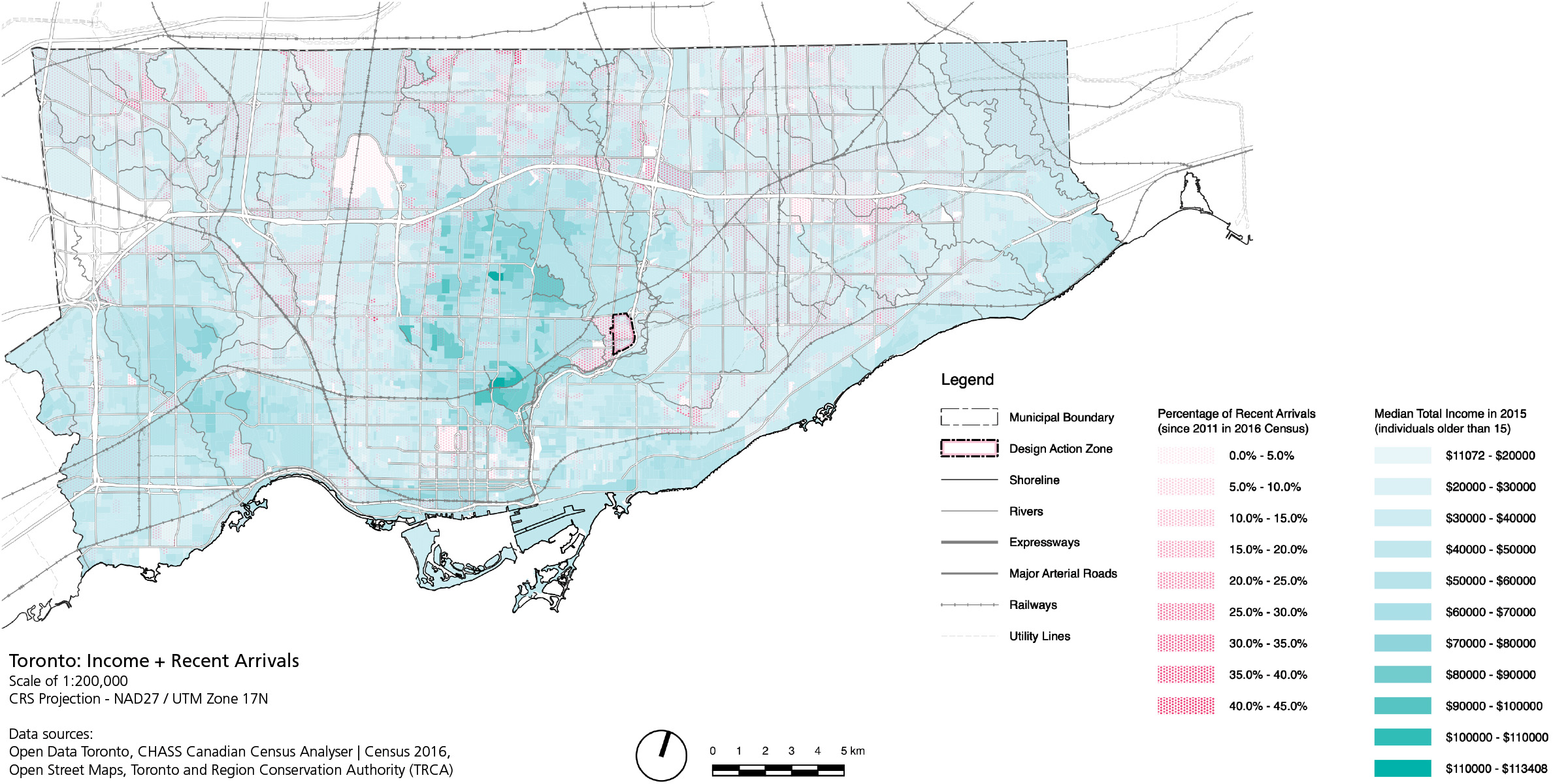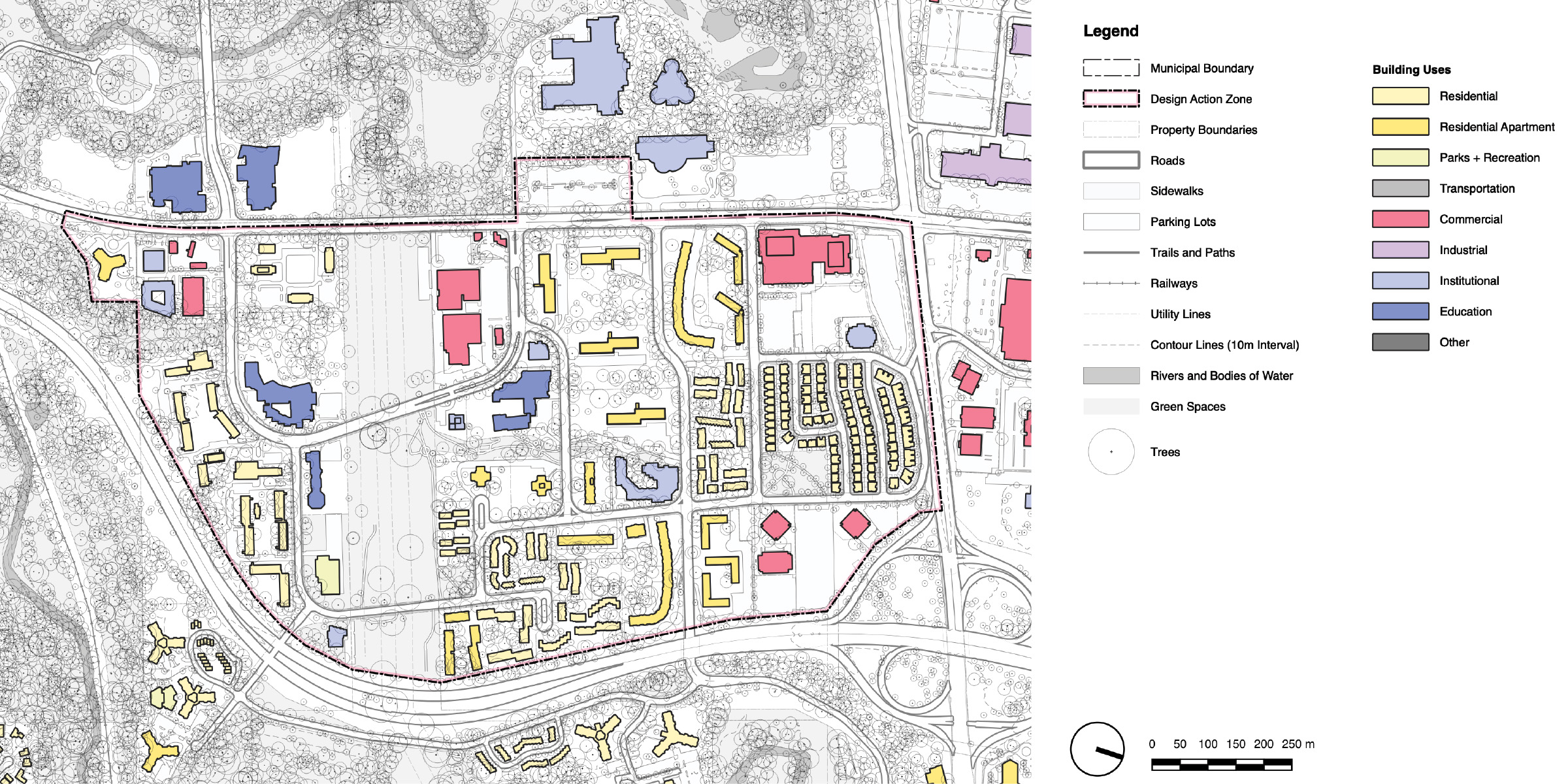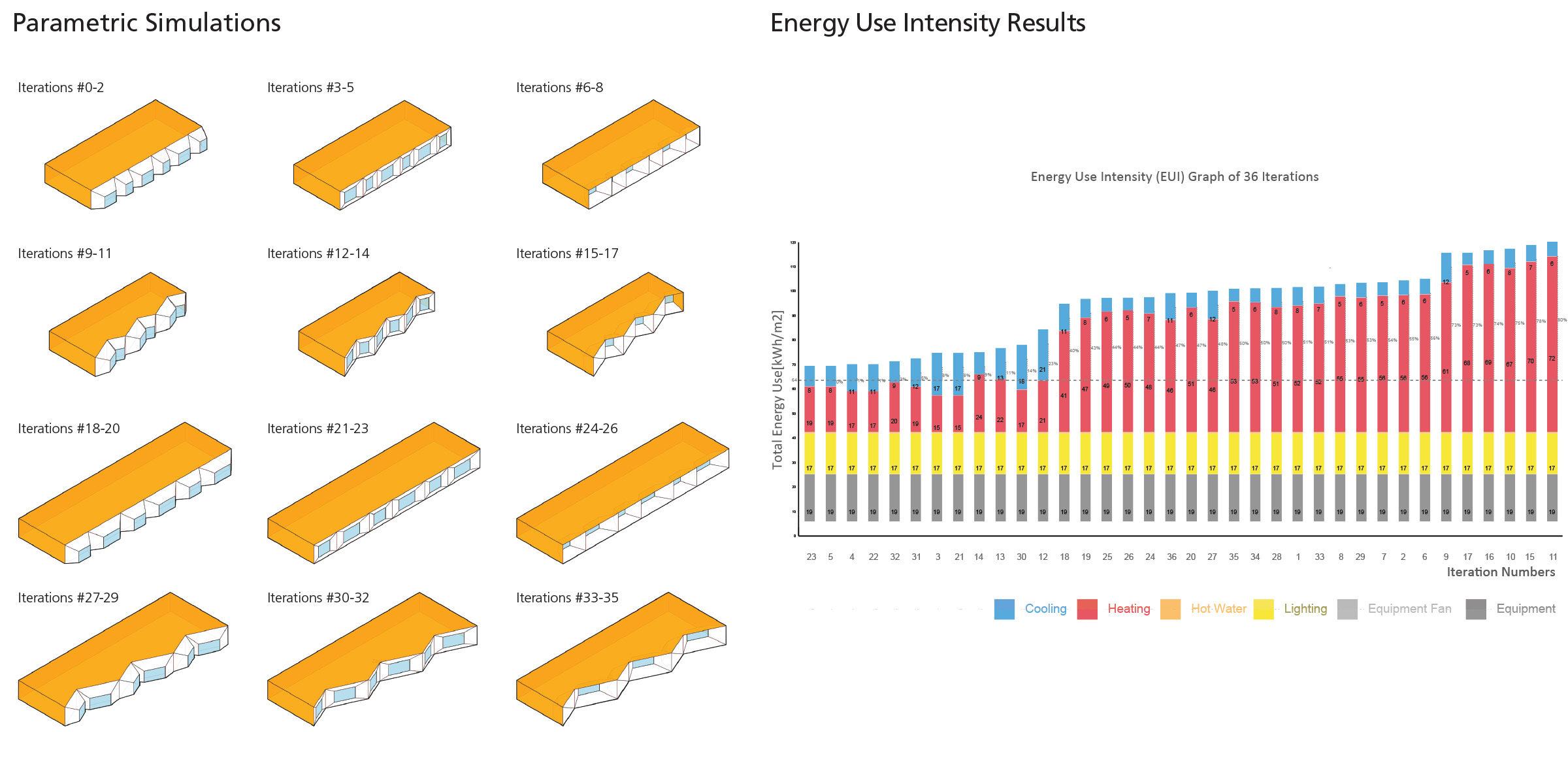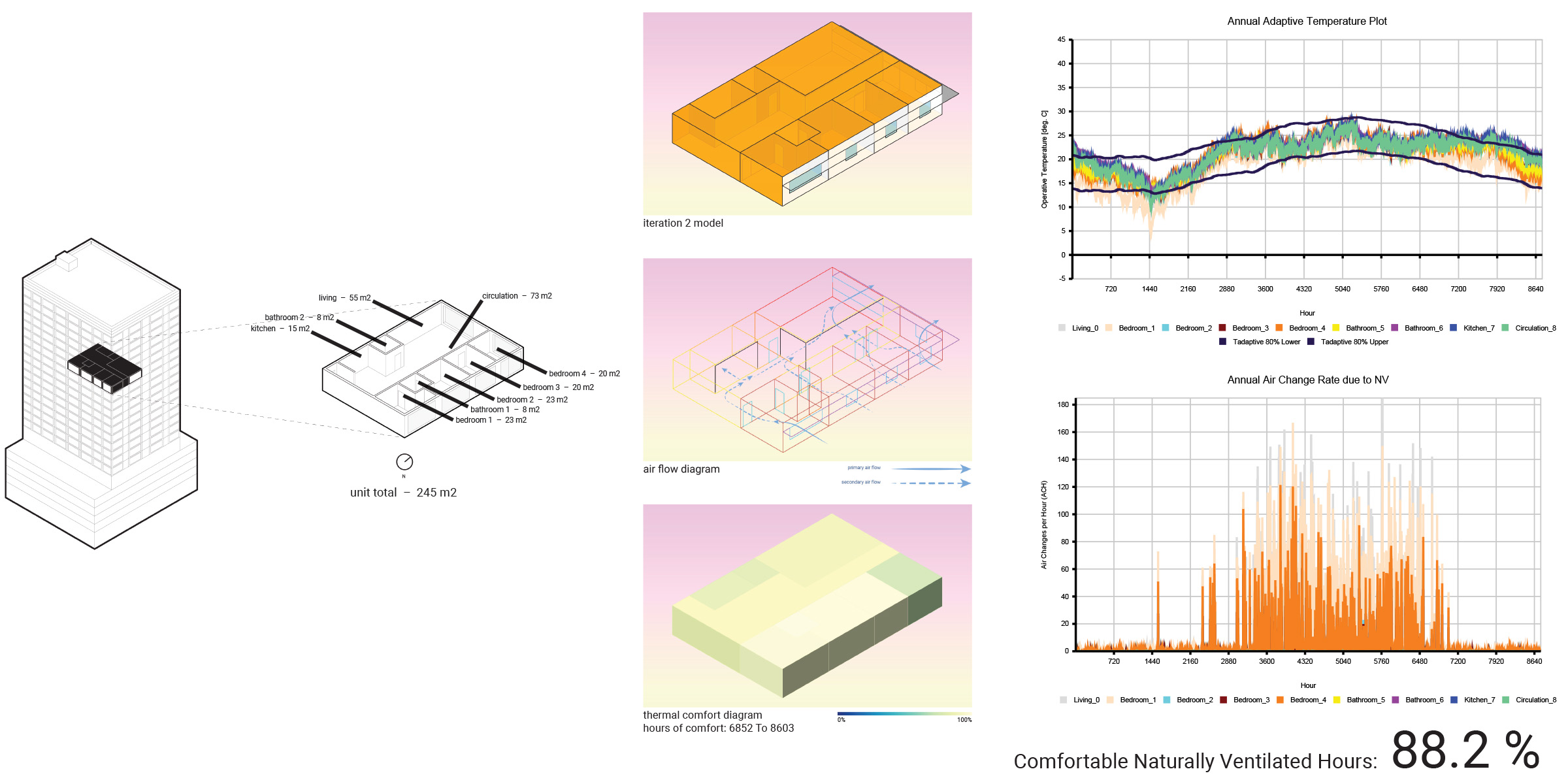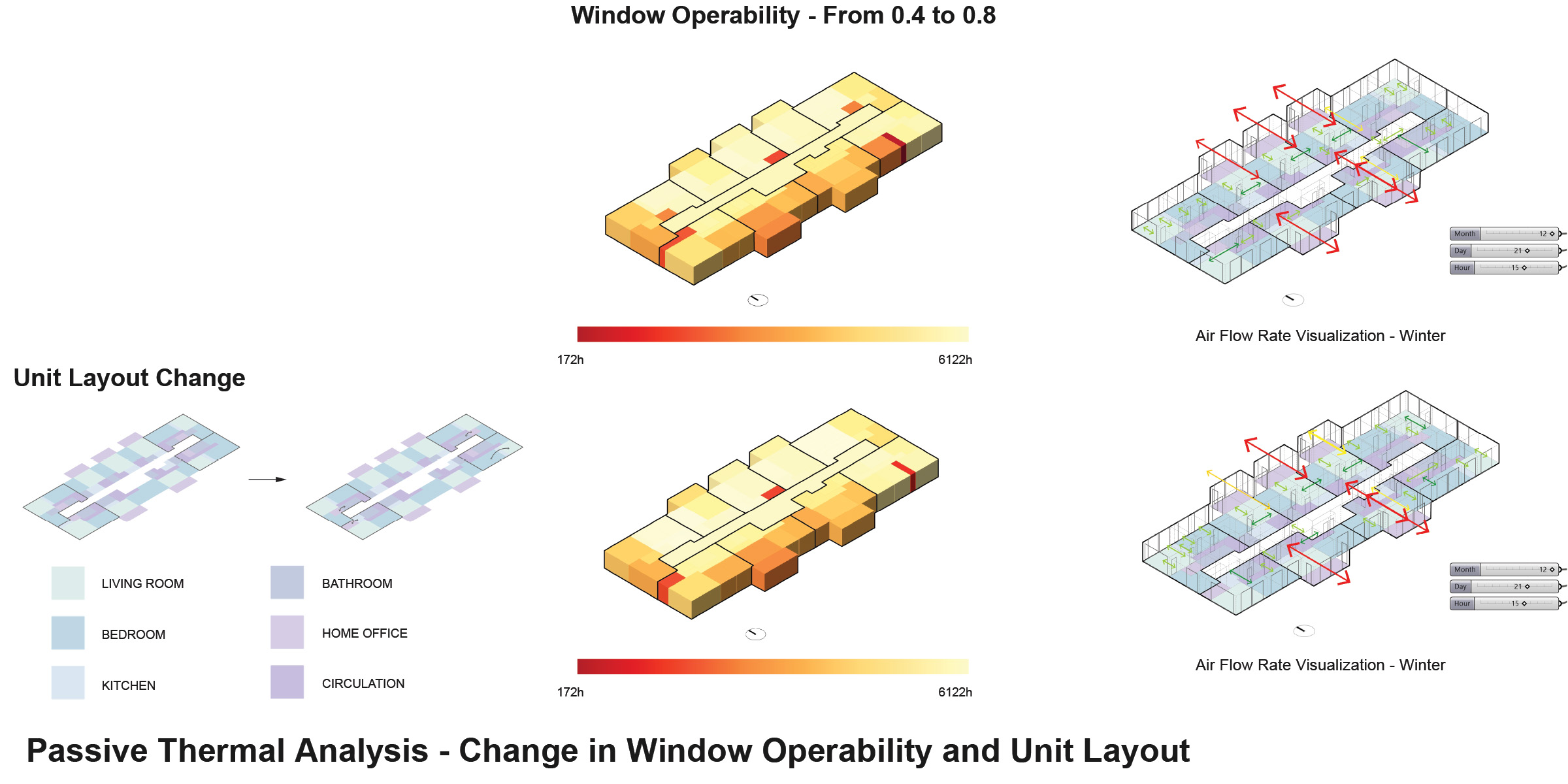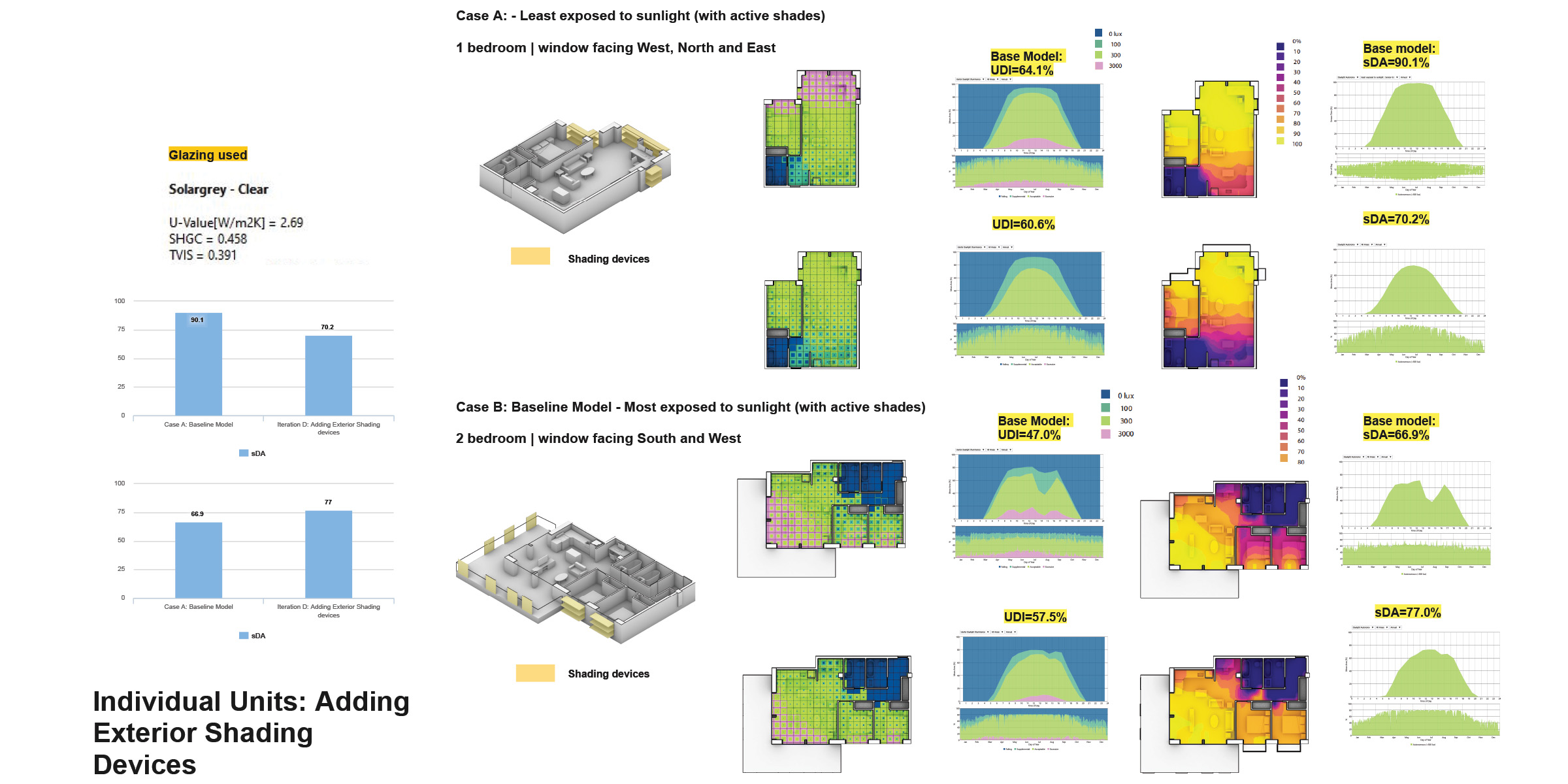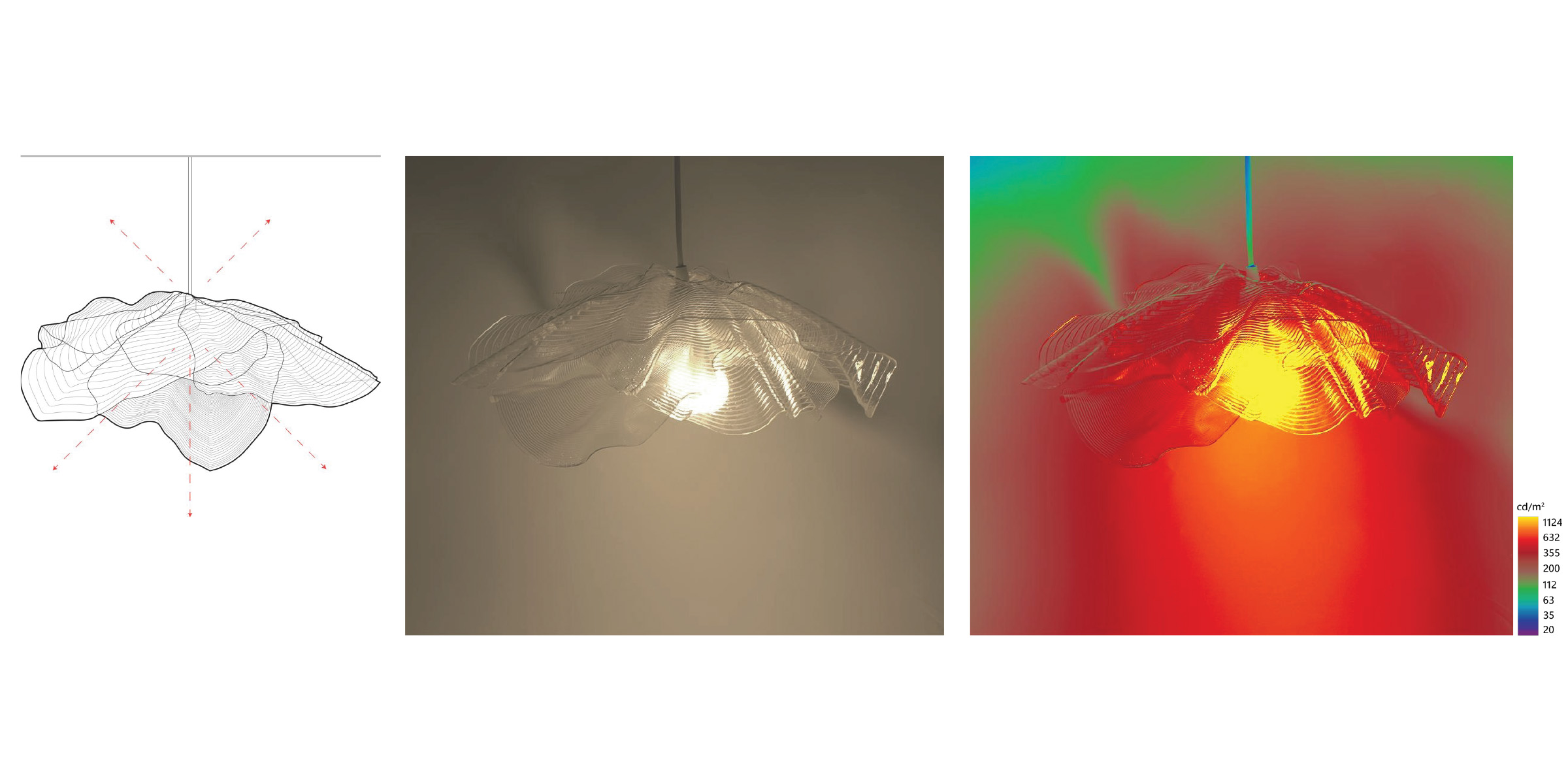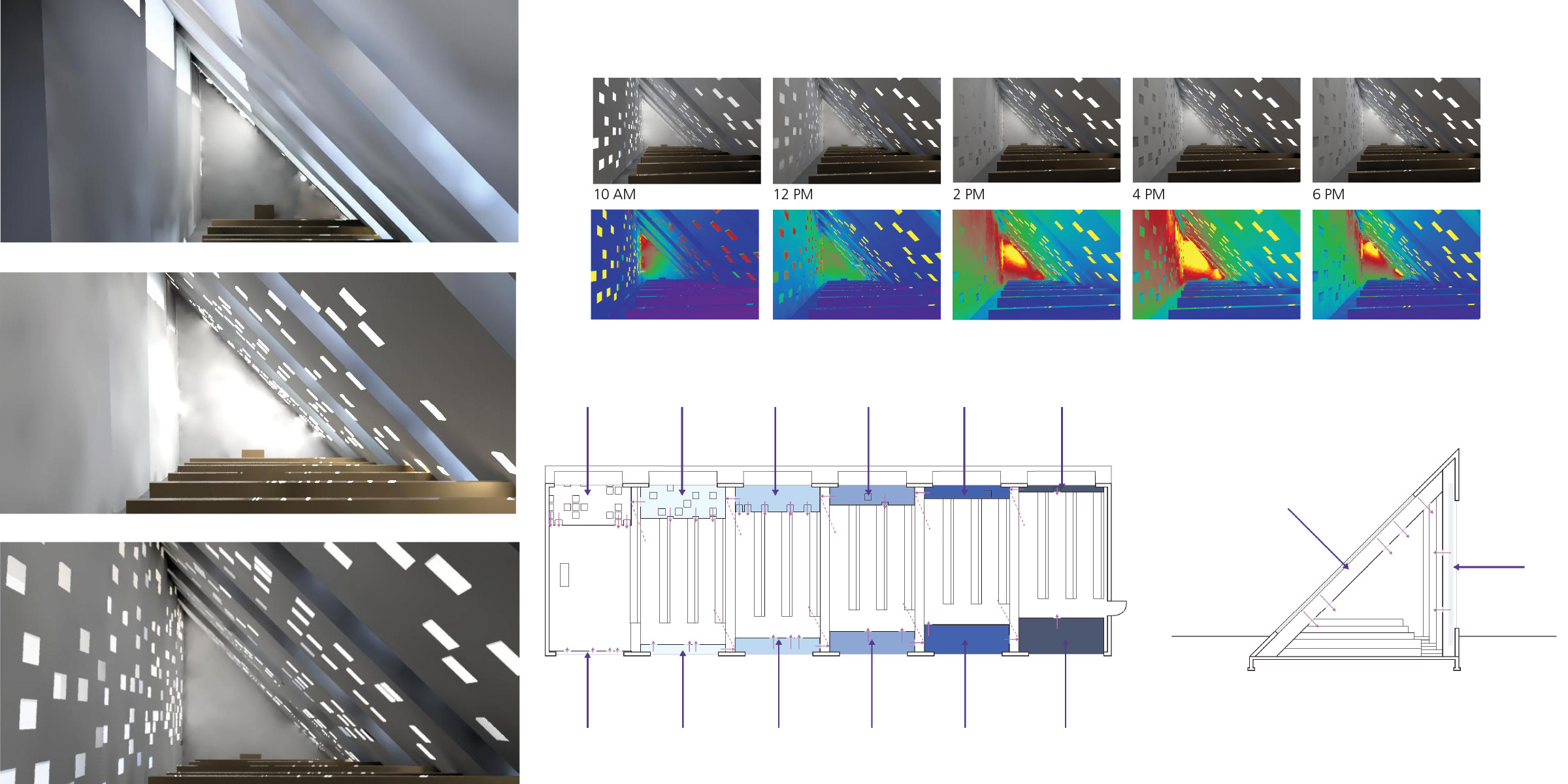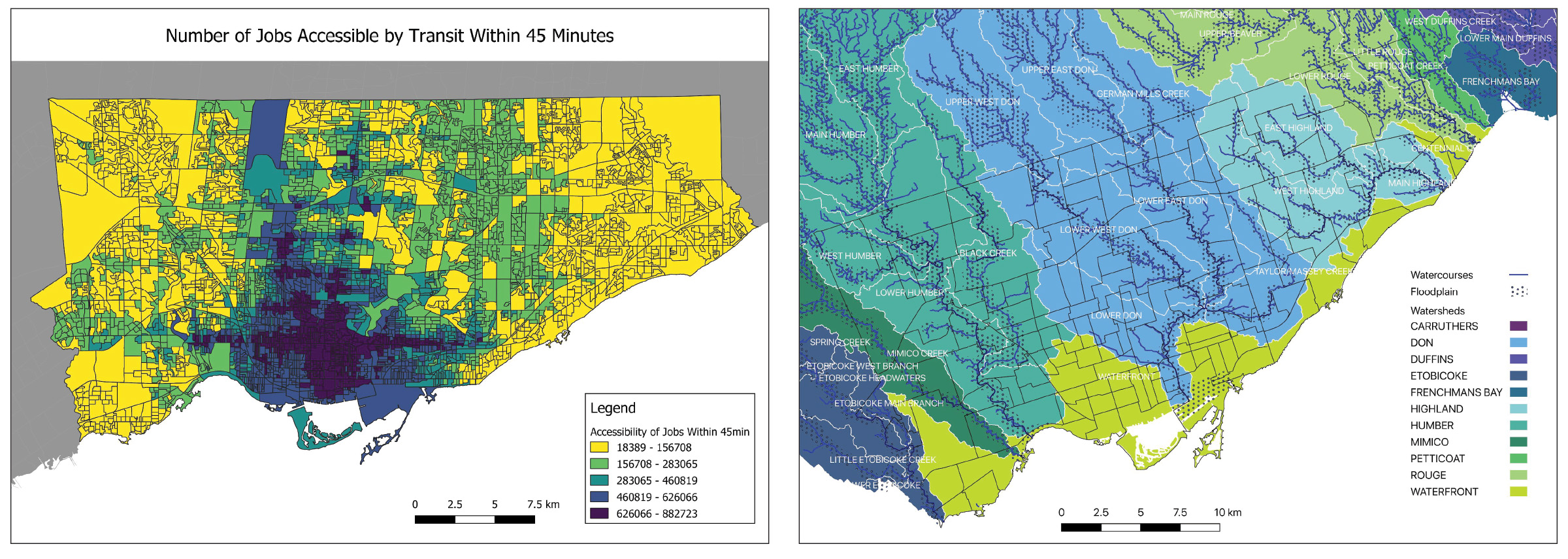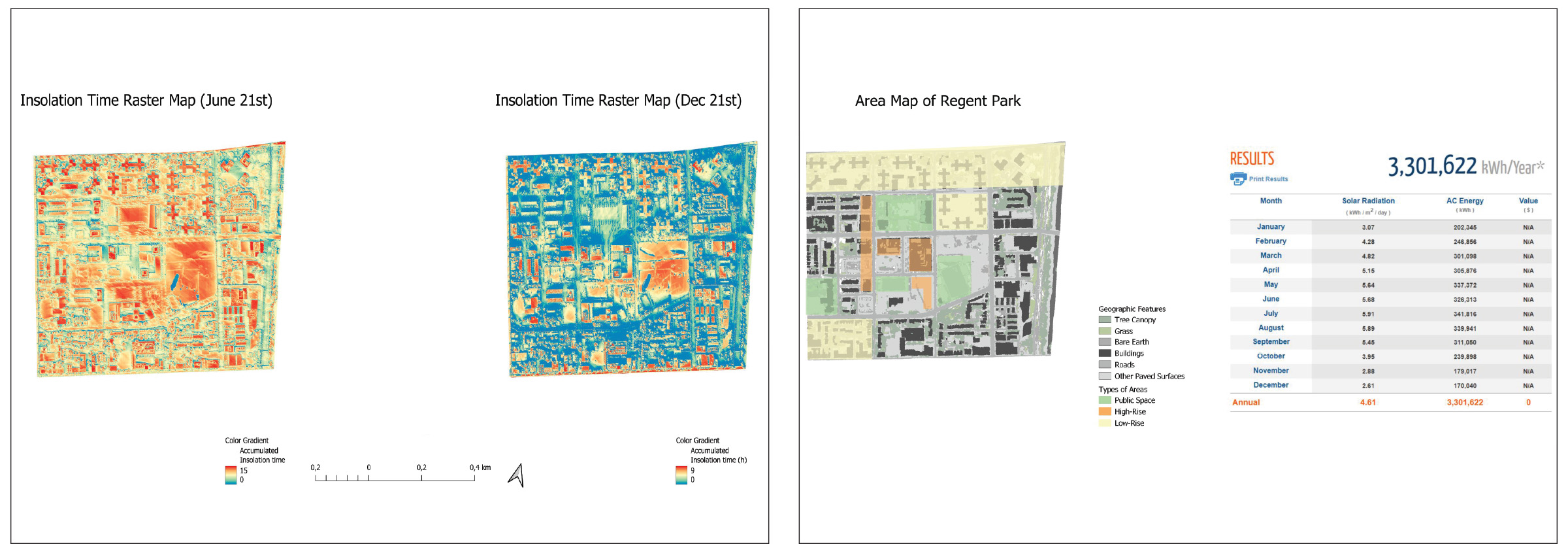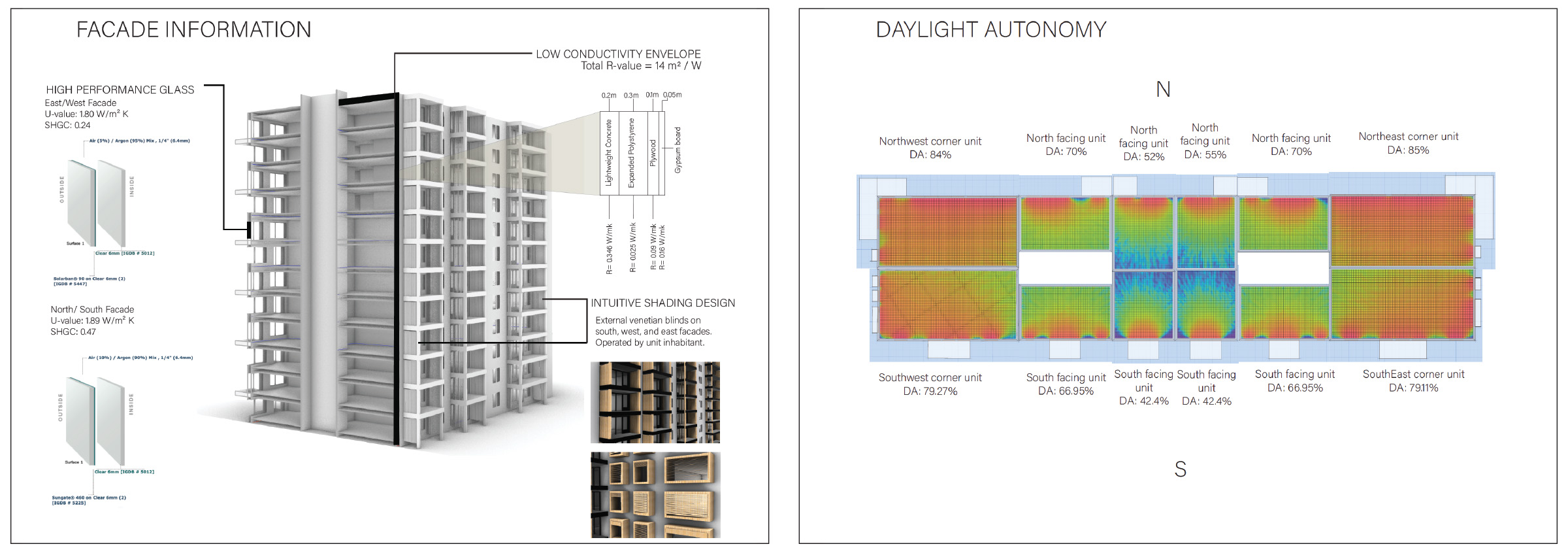Design Technology 2
ARC2023 2019–2022
Syllabus
Design Technology 2 is a required course for second year master of architecture students focusing on data-driven design through geospatial analysis, energy / thermal simulations, and climate-based daylight analysis. Students are tasked with learning computational tools to assess the built environment, establish baseline results, and use simulated outcomes in order to influence design with the goal of producing a high-comfort, low-energy housing project.
Daylight and Electric Lighting Design
ARC3202 2019, 2020, 2022
Syllabus
Selected Topics in Advanced Computer Applications: Daylight and Electric Lighting Design is an elective course for master of architecture students which teaches natural and electric lighting design in an design context. Students learn the scientific basis of light transport / visual perception and apply them to a course project—the comprehensive lighting design of a large communal gathering space with integrated electric and daylight systems. Individual activities and lectures focus on lighting measures and metrics, measuring light using calibrated high dynamic range photography, predictive electric and daylight simulations, material properties, visual comfort & perception, electric lighting design, lighting energy consumption, and scale model building & measurement.
Urban Sustainability
ENV307 2019–2022
Syllabus
Urban Sustainability is an undergraduate elective in the School of the Environment which provides a broad overview of methods for the design and analysis of sustainable urban neighborhoods and cities. Subtopics within this field that students learn about include: climate change & carbon emissions, walkability, water management, resource management, urban heat island and microclimate, growth and sprawl, energy production, and daylighting. Students learn an introduction to geospatial information systems (GIS) and apply them to an analysis of a sustainabiliy topic within the city of Toronto.
Environmental Design
ENV335 2020
Syllabus
Environmental Design is an undergraduate elective in the School of the Environment. Students without an architecture background, take a hands-on approach to investigating several environmental issues specific to architectural design: climate-responsive design, energy consumption, health and comfort, natural lighting, natural ventilation, mechanical HVAC systems, and on-site renewable energy generation. The courses expands upon these concepts through lectures, case studies, and hands-on activities in class. By the end of the term, students propose the design of a net-zero energy/carbon residential building. Since 2021, the class has been instructed by Aylin Ozkan.
Living Labs for Applied Sustainability
ENV1103 2021, 2022
Syllabus
Living Labs for Applied Sustainability is a required project course for the Master of Environment and Sustainability degree within the School of the Environment. Bridging sustainability goals, sustainable research and education about sustainability—modern university campuses and operational contexts can be increasingly labeled living laboratories of sustainable practice. Such living lab approaches offer a potential for universities—and their students—to play a role in the transition to sustainable higher education. Students in the course are engaged in an applied research project on an aspect of campus sustainability while working in close cooperation with U of T staff. They develop the skills needed to present information relative to these real-world problems and propose solutions integrating their own fields of study with new topics and practical, quotidian university concerns.
